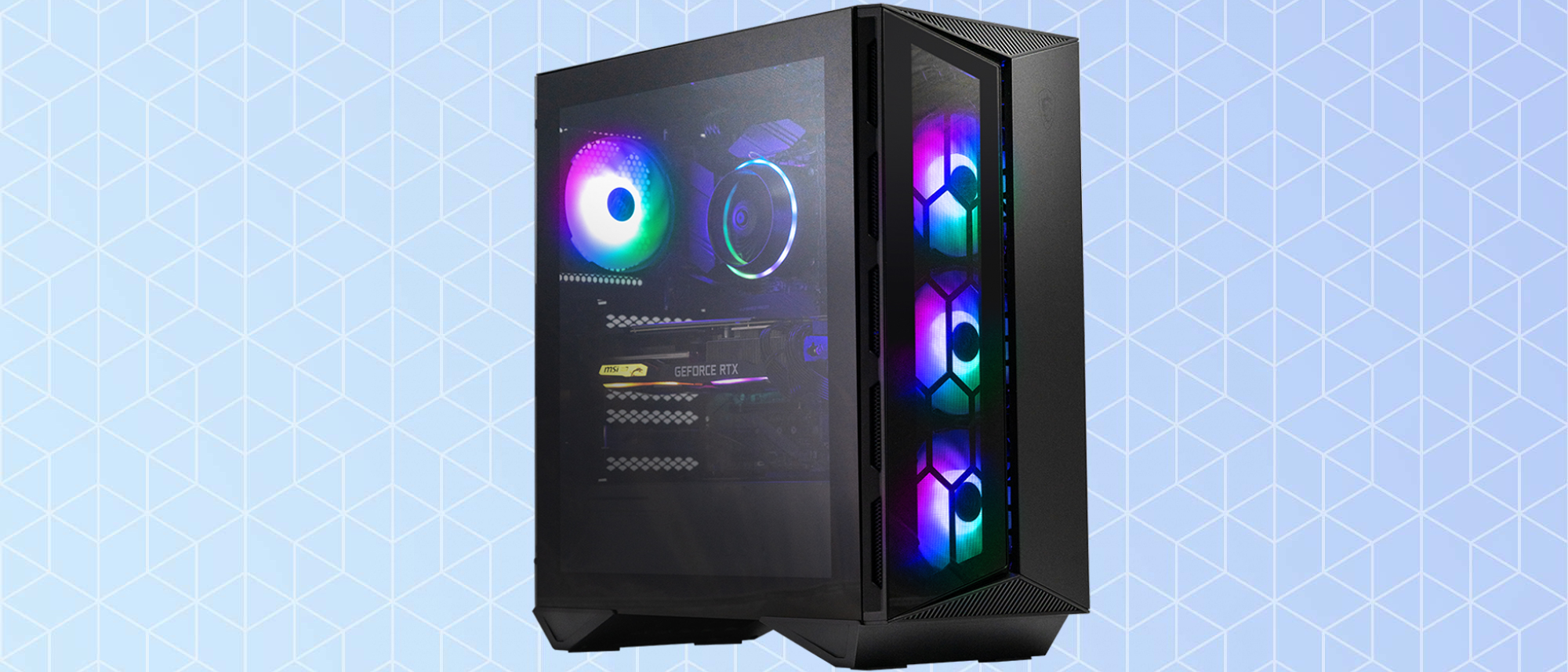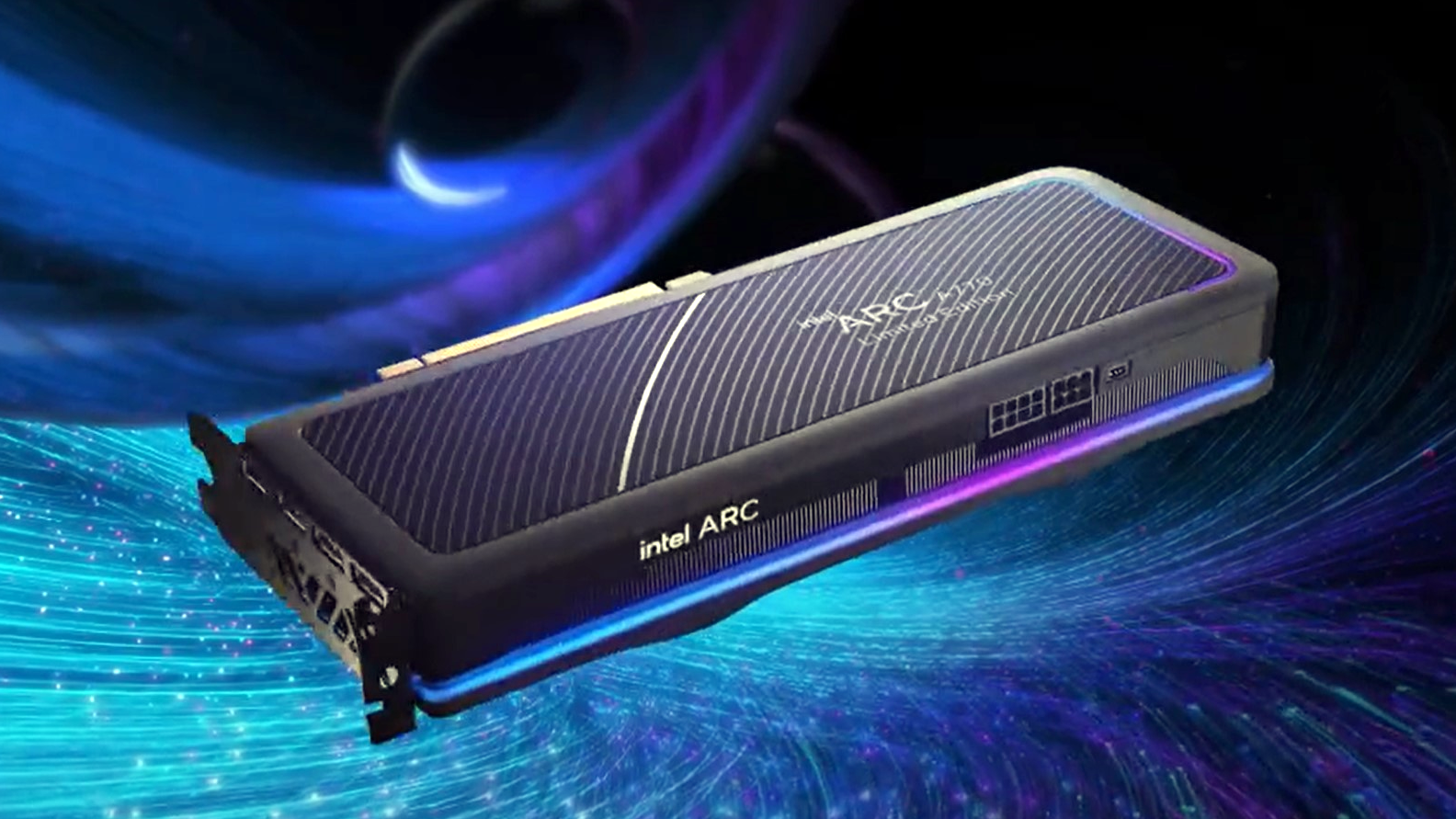Tom's Guide Verdict
The MSI Aegis RS11th couples strong performance with a chassis that'll fit your needs as they grow, at a price that's fair — if it's in your budget.
Pros
- +
Powerful hardware for gaming
- +
Quiet performance
- +
Spacious, tinkering-friendly case
Cons
- -
Lackluster peripherals
- -
Limited lighting customization options
Why you can trust Tom's Guide
Price: $2,599
Processor: Intel Core i7-11700K
RAM: 16GB
Graphics Card: MSI Geforce RTX 3080 Ventus 3X 10G OC
Storage: 2TB Seagate Barracuda HDD, 1TB XPG Gammix S70 M.2 SSD
Accessories: MSI Vigor GK30 keyboard, MSI Clutch GM08 mouse
Ports: USB-C, USB-A, 3.5mm audio, Ethernet, DispalyPort, HDMI
Size: 16.93 x 8.46 x 17.72 inches
Weight: 29.98 pounds
I've always taken the DIY approach with gaming PCs, but MSI's Aegis RS 11TE-089US ($2,599) makes a compelling argument for letting someone else do the work.
It's an understated, aggressively priced workhorse, packing performant hardware (including the nigh-mythical Nvidia GeForce RTX 3080) into a quiet, upgrade-friendly chassis.
No, it's not cheap. But prospective buyers who don't want to build their own rig will find a capable machine, with room for upgrades that'll keep their investment relevant for years to come, making this one of the best gaming PCs currently on the market.
MSI Aegis 11th review: Price and availability
The $2,599 Aegis RS 11TE-089US is, unsurprisingly enough, an MSI showcase. The liquid-cooled Intel Core i7-11700K processor is paired with an MSI GeForce RTX 3080 Ventus 3X 10G OC graphics card on the MSI Z590 Wi-Fi motherboard. They’re powered by an MSI MPG A750 power supply, and built inside an MSI MPG Gungnir 110R chassis. An MSI Clutch GM08 mouse and MSI Vigor GK30 keyboard complete the set.
You’ll also find a 1TB M.2 solid state drive that hosts Windows and other programs, and a 2TB 7,200rpm hard drive for storage. The PC we reviewed is just shy of the highest tier in the Aegis RS 11th series lineup; differences largely boil down to processor and motherboard selection, with less expensive models downgrading the graphics card and storage options.
MSI Aegis 11th review: Design
This is a fairly mundane-looking machine, particularly compared to PCs like Alienware's Aurora R10 Ryzen Edition. The case's peaked front face breaks up the traditional boxy monotony, and a transparent panel on the side lends a clear view of the brightly-lit internals.
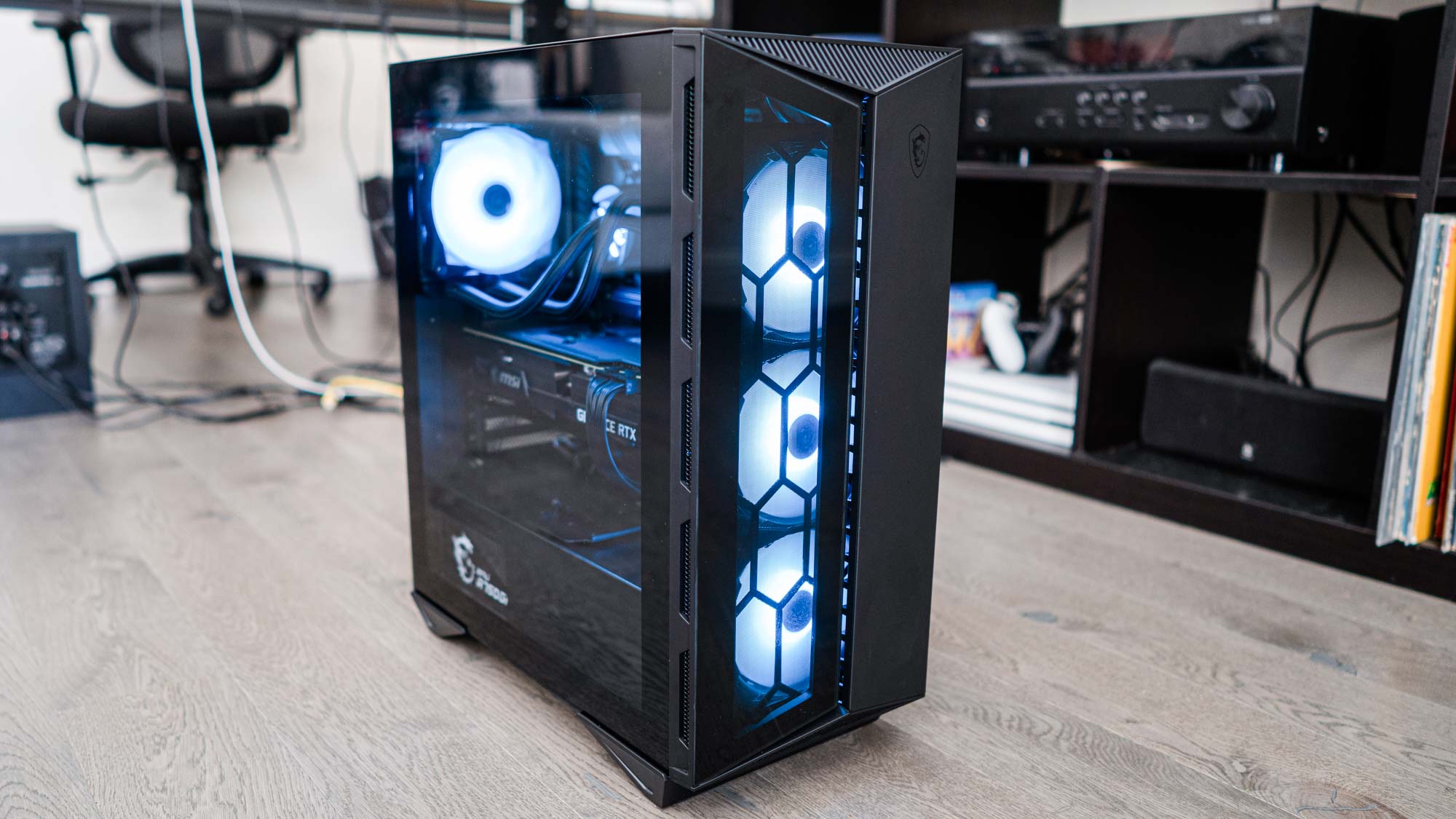
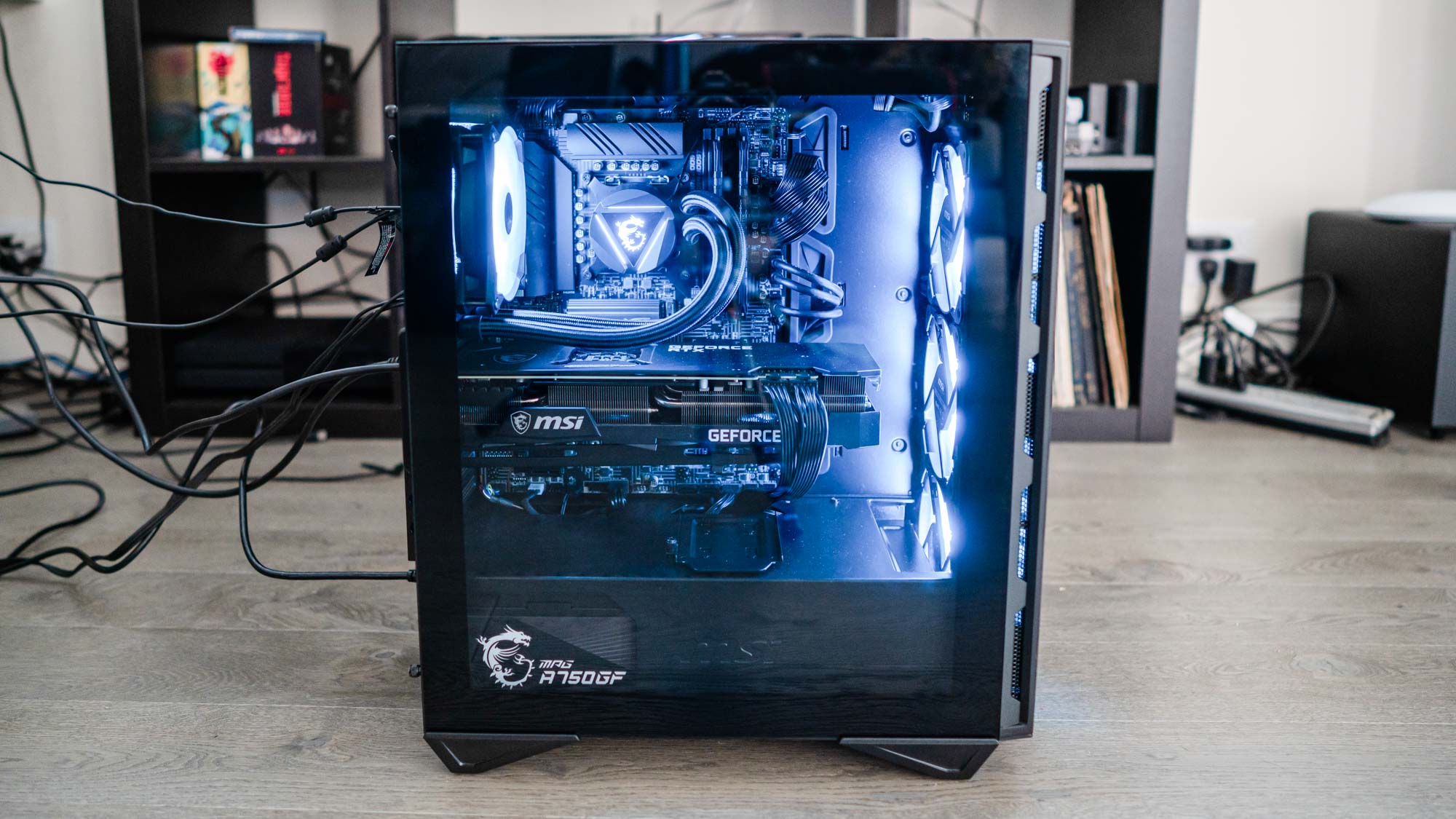
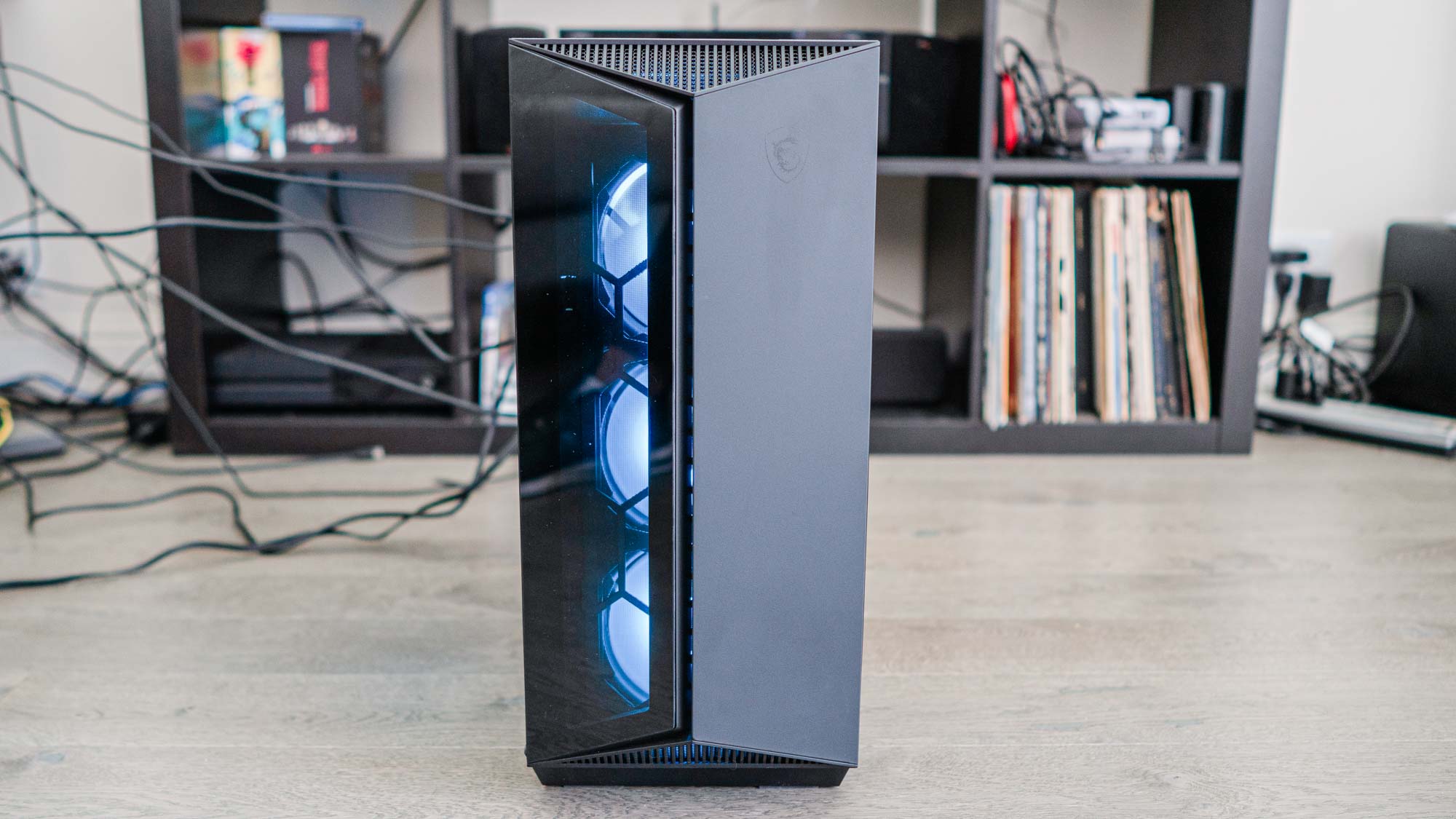
Color options on the RGB fans and closed-loop liquid cooler are limited, but you can cycle through the presets by pressing the “LED” button on the top face. If you opt for Wi-Fi the antennas can get in the way of cables, but it's easy enough to make everything fit.

The case measures 16.93 x 8.46 x 17.72 inches, and weighs just under 30 pounds — larger than PCs like Dell’s XPS 8940, but smaller than the aforementioned Aurora R10, or Corsair’s Vengeance i7200. All told, it's a simple design that would look nice on top of your desk, especially if a splash of color speaks to you.
MSI Aegis 11th review: Ports and upgradability
The machine offers 2.5G Ethernet and Wi-Fi 6 (also known as 802.11ax); if your home network can deliver greater than gigabit speeds, then these are neat "nice-to-haves." Also included are Bluetooth 5.1, a pair of USB-C ports (one on the top, one on the rear), four USB 2 ports on the rear, and five USB 3 ports (two USB 3.2 Gen 1 on top, one USB 3.2 Gen 2 and two USB 3.2 Gen 1 on the rear).
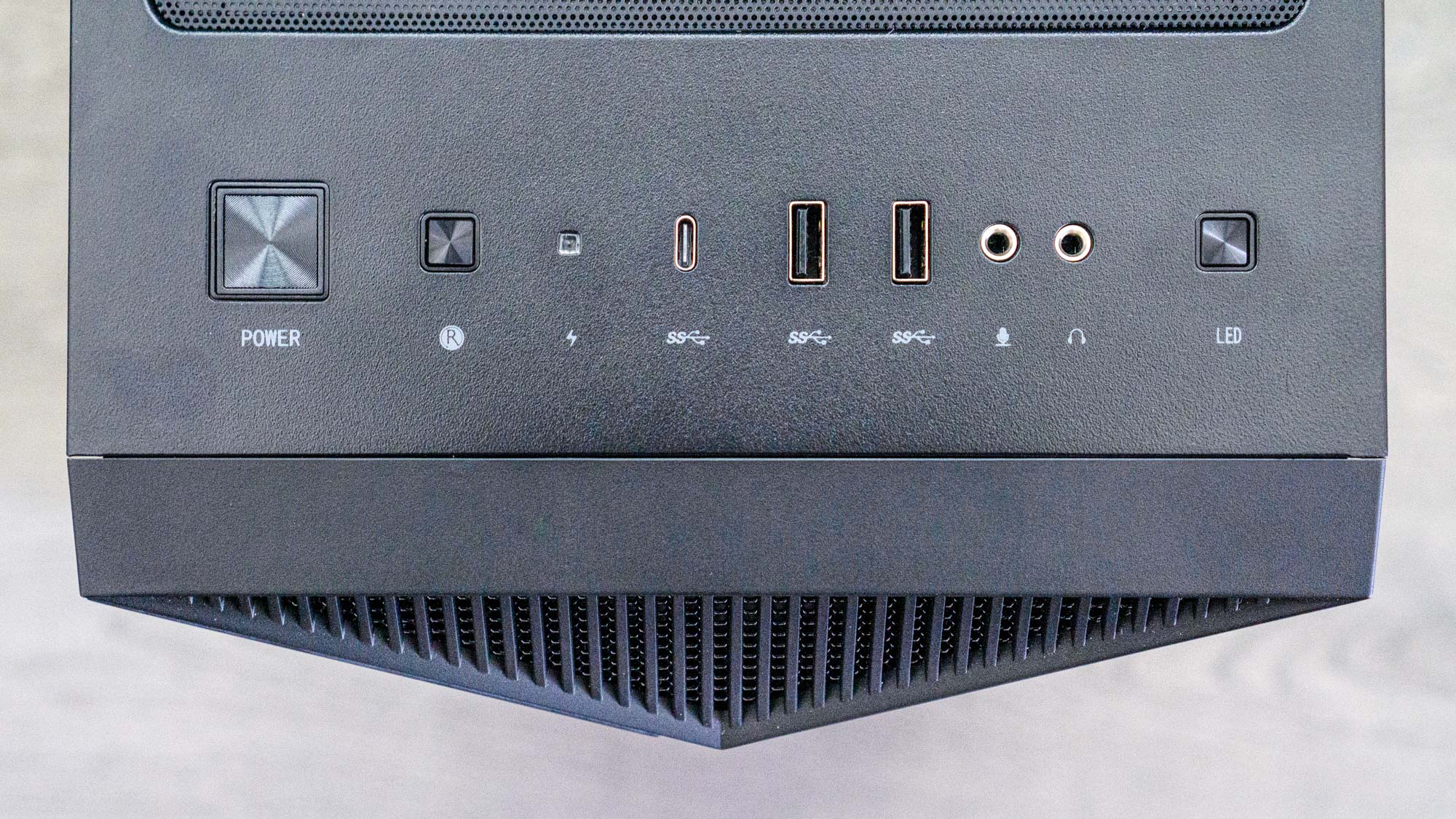
The graphics card has three DisplayPort outputs and an HDMI port, complementing the HDMI and DisplayPort from the motherboard. The 16GB of RAM arrives in the form of two 8GB sticks, leaving two free slots for upgrades when you're ready.
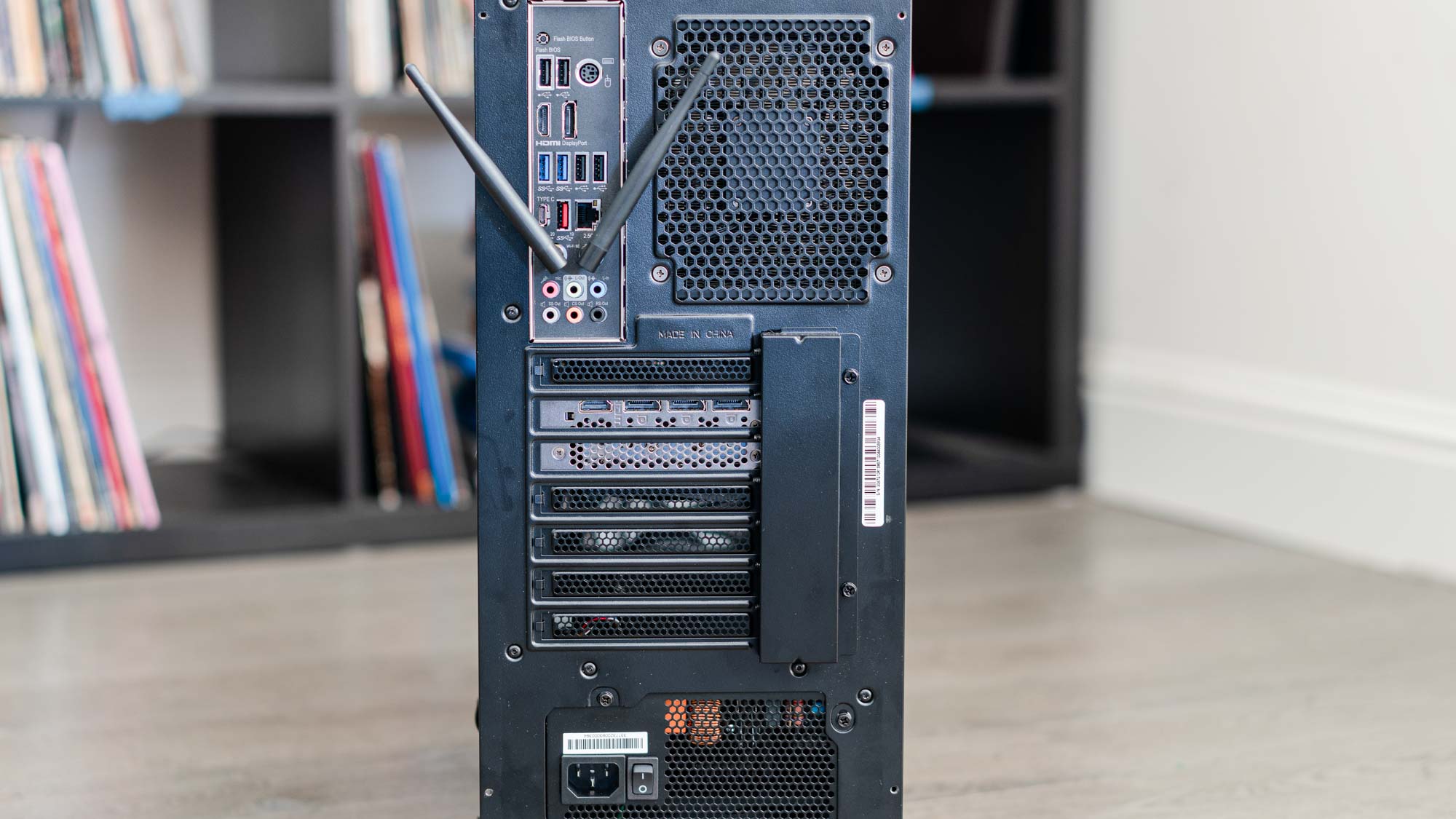
Awful as I am at cable management, I'm partial to a case that gives me lots of room to work with. MSI's Gungnir does well here. Rubber grommets keep all of the cabling routed out of the main cabin and into the opposite side of the case. It looks a bit untidy back there, but there's enough room to effortlessly seal the case back up. The case prioritizes airflow from the trio of fans on the front face out through the rear, so there isn't all that much space left over for additional storage.
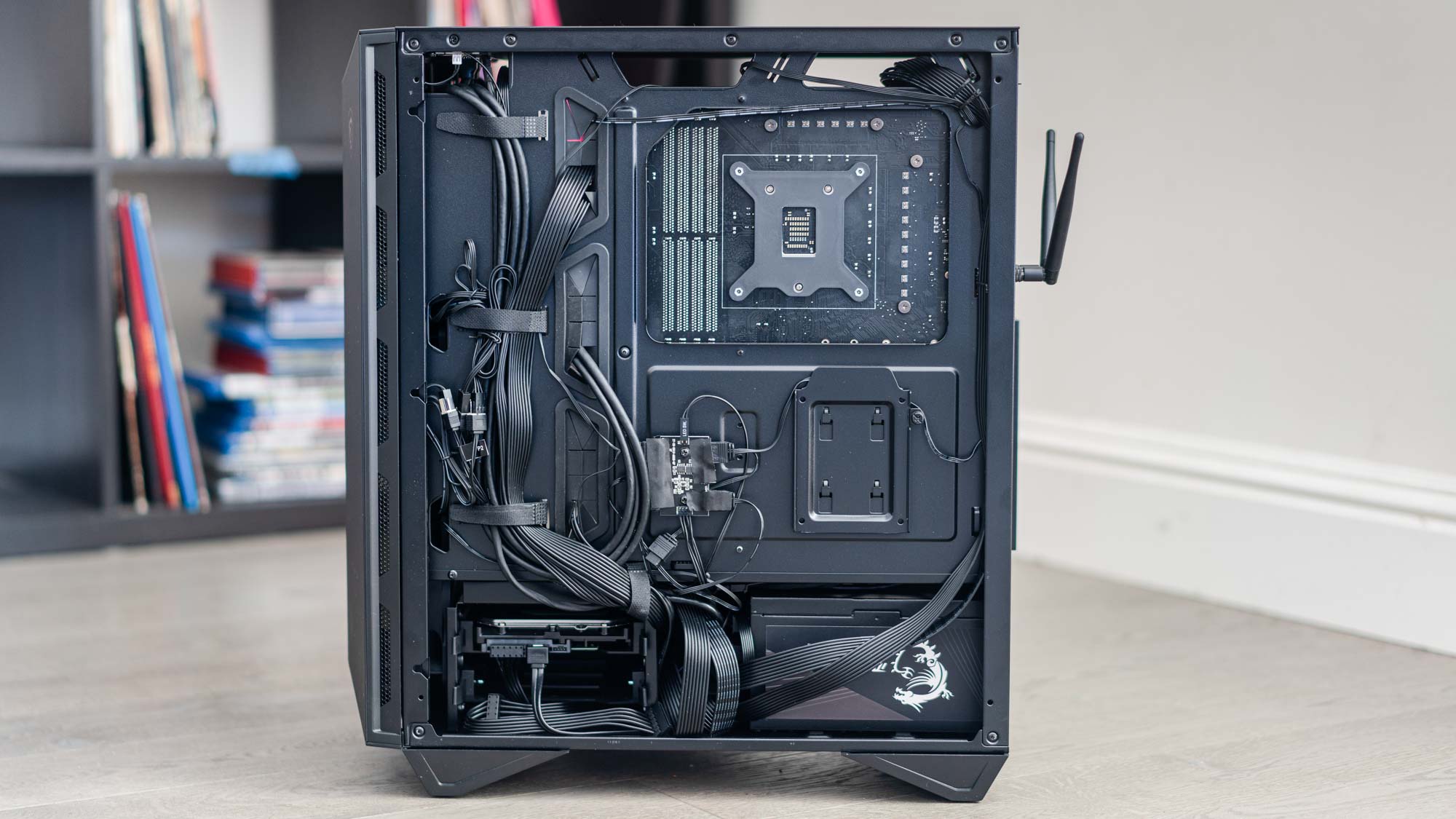
There's a drive bay for a pair of 3.5mm hard drives adjacent to the power supply, on the far side of the case. There are also two SSD mounting brackets: one mounted vertically on the far side of the case, and one in the cabin, sitting on the power supply cage. Their placement feels a little odd to me, but the grommets should keep cable management under wraps.
MSI Aegis 11th review: Gaming performance
The Aegis RS 11TE-089US handles 4K gaming comfortably, if not quite reaching the 60 frames per second threshold in all the games we tested. Its averages in Assassin's Creed Valhalla (52 fps), Grand Theft Auto V (54 fps), and Shadow of the Tomb Raider (57 fps) aren't far off the mark, however. The lowest result of 50 fps in Red Dead Redemption 2 is admirable, given that game’s tendency to crush lesser machines.
Anecdotally, the PC churned through my testing with aplomb. I tried out titles like Control, Battlefield V, and Cyberpunk 2077 with nary a hitch at maximum settings on my 1440p display. The machine remained appreciably quiet throughout: I could hear the graphics card purr during especially active gaming sessions, but the fans were never distracting.
MSI Aegis 11th review: Overall performance
The PC averages a GeekBench 5.3 multicore score of 10,102, just shy of the Corsair Vengeance i7200's 11,047. It completed our Handbrake video encoding test in 5 minutes and 19 seconds, again bested by the Corsair (5:13), and scored 635.3MBps in our 25GB file copy test (versus the Corsair's 824.4MBps). The Corsair offers twice as much RAM (32GB, vs 16GB), and its Intel Core i9-10850K processor offers more physical cores and threads for multi-core workloads. Adding a bit more RAM will step up performance, but these differences aren't a dealbreaker for real world use cases.
MSI Aegis 11th review: Software
Bloatware is limited. Norton Security comes pre-installed, aggressively shadowing your steps across the internet with nagging security prompts while regularly nudging you to subscribe. The MSI Center, a grab bag of customization, monitoring, and quality of life tools, is a bit more useful. Enthusiasts can use the Monitor tool to check temperatures, and tweak voltages, clock, fan, and pump speeds, without diving into the BIOS. The interface is a little spartan for a process that could easily turn your gaming rig into a paperweight, but if you know exactly what you're doing, it's likely fine for some quick monitoring.
Of dubious note is Mystic Light, which lets you tweak the hardware’s color schemes on the fly. It includes voice commands that let you say "Hey Lucky," followed by a phrase (e.g., "Mystic Light Rainbow" or "Mystic Light Steady") to automatically swap to a different LED style. I lack that creative je ne sais quoi required to make the most of RGB lighting, but I cannot fathom a situation where using my voice to change my keyboard's color scheme would be a value add. It works though, so your mileage may vary.
MSI Aegis 11th review: Peripherals
The included MSI Clutch GM08 mouse is ambidextrous, and fits comfortably in my relatively large hands. There are two thumb buttons on the left edge, and a dots-per-inch (DPI) sensitivity button on the spine; you can cycle between five different DPI sensitivity settings. You can also adjust the lighting effects on the mouse's palm rest and scroll wheel, provided you were looking for a languid red pulse, or no lighting at all.
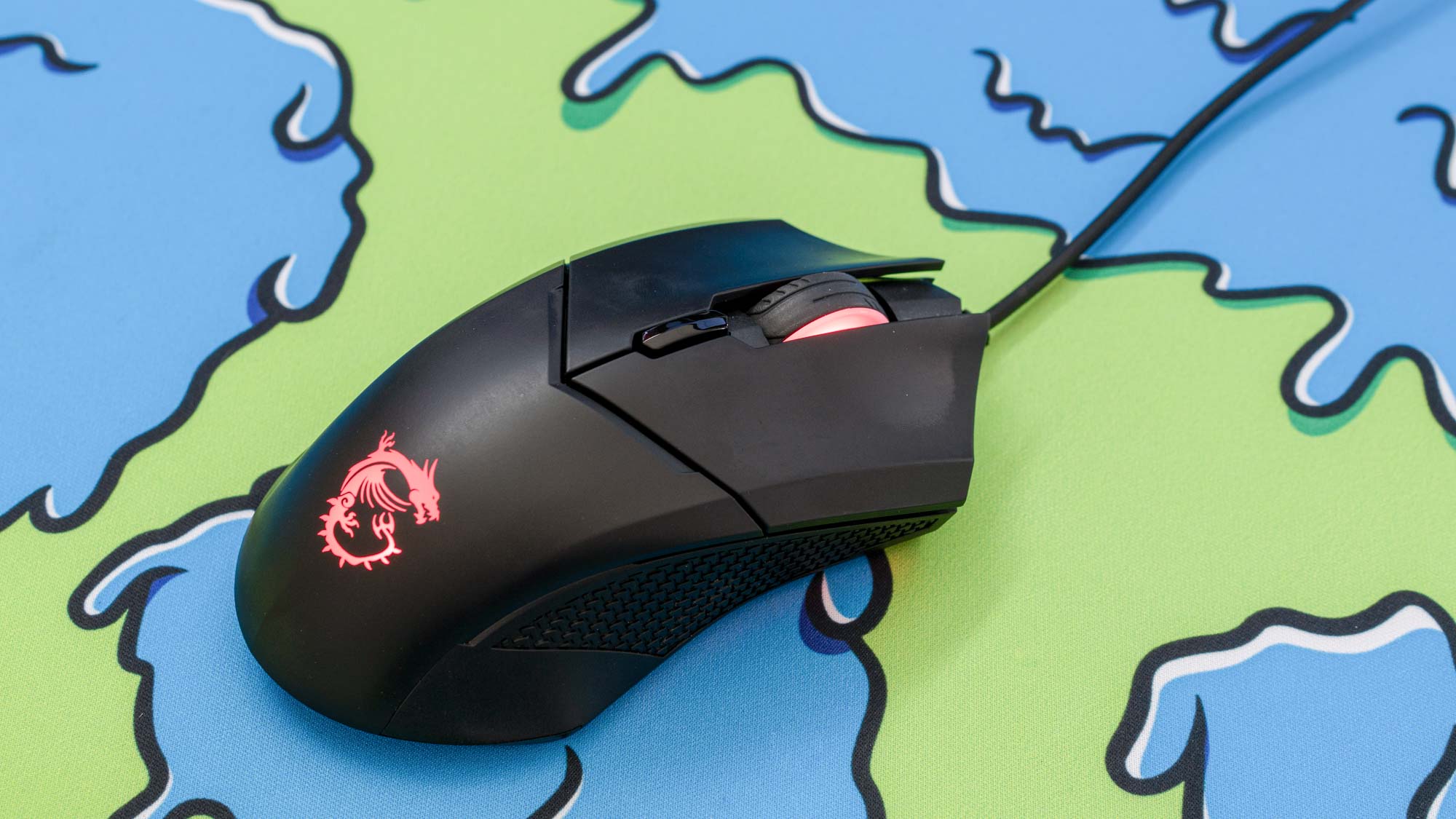
The MSI Vigor GK30 ticks all of the boxes for a modern gaming keyboard: a relatively loud clack when you type, RGB lighting, and a function key with the brand's logo. The keyboard's lighting is divided into just six zones: you can have a single effect that spans the keyboard, or pick individual colors for blocks of keys.
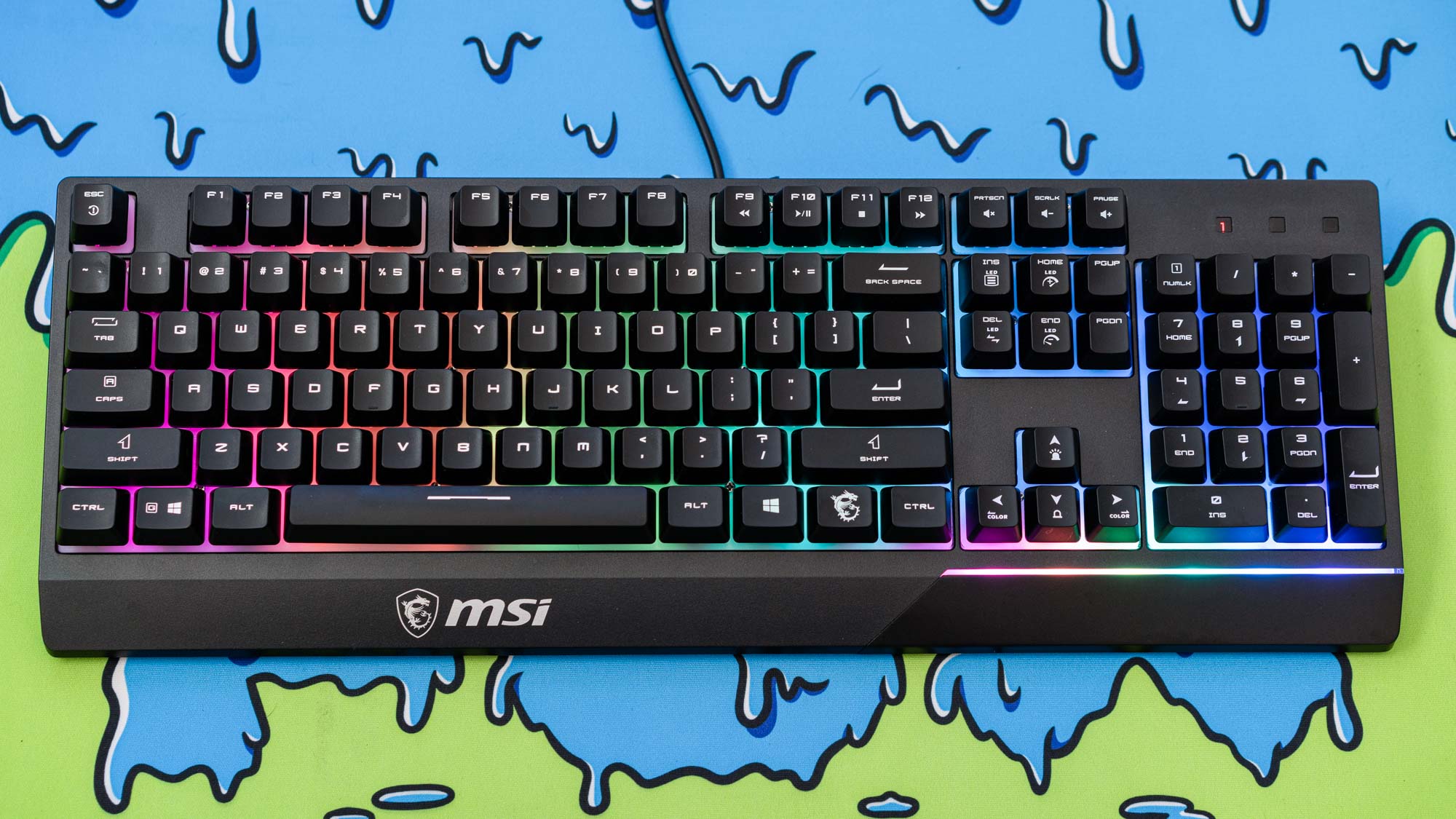
The keyboard’s "mechanical-like plunger switches" claim to offer the same typing experience of "true" mechanical switches, but the mushiness of membrane keys shines through here. And while not quite as loud as Cherry MX Blues, they're still rather loud — you're getting the worst of both worlds here. I recommend making the keyboard (and mouse) the first items on any upgrade list.
MSI Aegis RS 11th review: Verdict
I like to make a quick and totally unscientific "back of the napkin" assessment on desktops, gauging what I'd pay for the build as listed, and weighing that number against the sticker price. My total came out to around $2,360 (excluding taxes and shipping, which will add up). I've had absolutely no luck tracking down an Nvidia RTX 3080 at anything close to MSRP so this is purely a theoretical exercise, but buying this pre-built machine and letting someone else handle sourcing the parts, wrangling the cables, and testing the build after assembly is not a bad deal.
This brings us back to the heart of the matter: is $2,599 too much to spend on a gaming rig? That's a personal choice. MSI seems to be able to keep the price (relatively) reasonable by using their own wares, and when it's time to upgrade, there are no cages to fiddle with, or obtuse locking mechanisms to get in your way. If you were building your own machine and diligent with regards to sales and component availability you could hit a more favorable price point, and pick components that suit your needs: I'd take a closer look at AMD's CPU offerings, opt for more RAM, and drop the HDD in favor of a larger, faster SSDs, to start.
All that said, the MSI Aegis RS 11TE-089US gets you most of the way there. Strong performance is coupled with a chassis that'll fit your needs as they grow, at a price that's fair — if it's in your budget. Just keep an eye out for a new mouse and keyboard, and you won't go wrong here.
Nate Ralph has well over a decade of experience tinkering with, on, and around technology. He's driven by a need to understand how things work, which manifests as a passion for building and re-building PCs, self-hosting open source services, and researching what's new and next in the world of tech. When he's not troubleshooting his home network, he can be found taking and editing photos, dabbling in space and flight sims, or taking baby steps into the world of woodworking.
